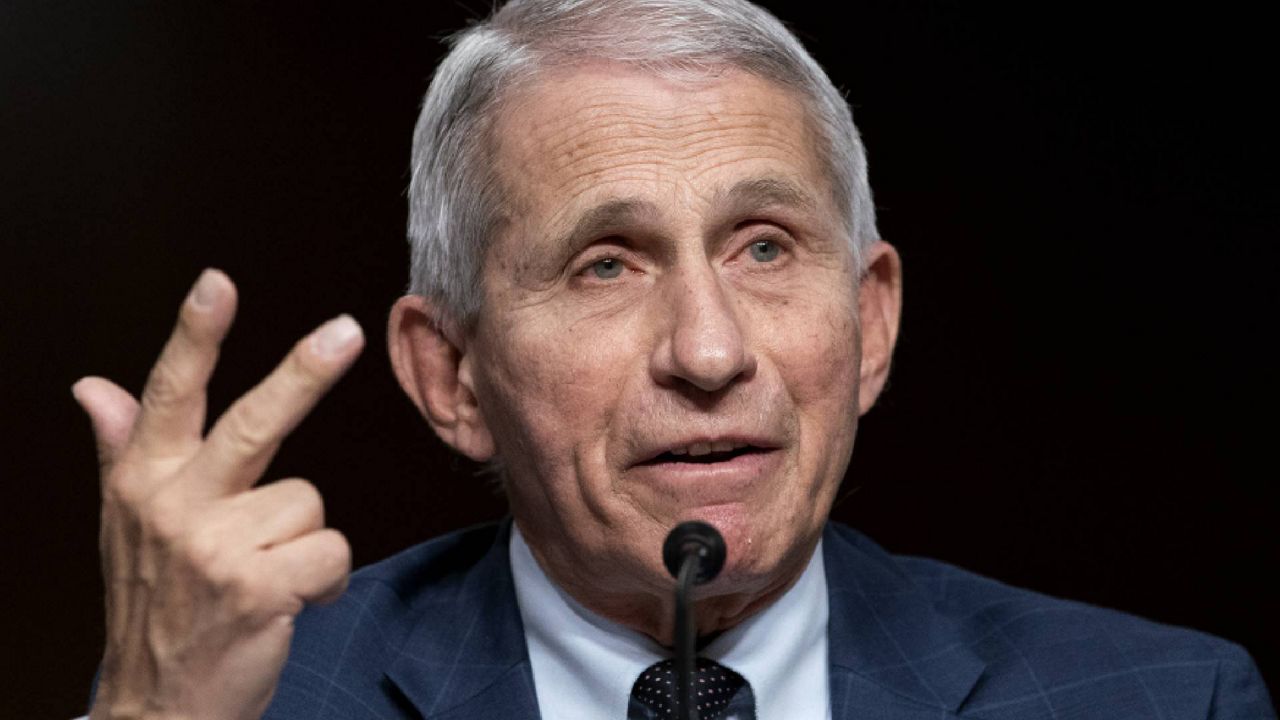Dr. Anthony Fauci will step down at the end of this year to pursue the “next chapter” of his work, the president’s chief medical adviser and top infectious disease expert announced in a statement Monday, bringing to an end a five-decade career in government service.
Fauci, who has served as the director of the National Institute of Allergy and Infectious Diseases (NIAID) for 38 years, said he would step down from all his federal government roles in December.
“It has been the honor of a lifetime to have led the NIAID, an extraordinary institution, for so many years and through so many scientific and public health challenges,” he wrote, adding that he is “not retiring” completely.
“After more than 50 years of government service, I plan to pursue the next phase of my career while I still have so much energy and passion for my field,” he said, which includes advancing “science and public health and to inspire and mentor the next generation of scientific leaders as they help prepare the world to face future infectious disease threats.”
President Joe Biden responded to his Chief Medical Advisor’s announcement in a statement Monday, saying the White House has “been able to call him at any hour of the day for his advice as we’ve tackled this once-in-a-generation pandemic.”
“His commitment to the work is unwavering, and he does it with an unparalleled spirit, energy, and scientific integrity,” Biden said in the statement.
“Whether you’ve met him personally or not, he has touched all Americans’ lives with his work. I extend my deepest thanks for his public service. The United States of America is stronger, more resilient, and healthier because of him,” he added.
Fauci has spent more than half a century in public health. He has served as a health adviser to every U.S. president since Ronald Reagan; he was at the forefront of combatting the HIV/AIDS epidemic in the 1980s, and he received the Presidential Medal of Freedom from George W. Bush in 2008.
He's been a leader in pivotal research on and response to global HIV/AIDS issues, according to his official biography. He began his work on AIDS when it was first recognized in 1981, conducting studies that "underpin the current understanding of the disease" and initiatives on treatment and prevention. Fauci helped create the President’s Emergency Plan for AIDS Relief (PEPFAR), "which has helped save millions of lives throughout the developing world."
The Brooklyn-born infectious disease expert was thrust further into the spotlight during the COVID-19 pandemic, and he became a target of Republican criticism as his advice evolved over the course of the novel coronavirus pandemic.
He served as an adviser to Trump’s White House Coronavirus Task Force and was often seen in the background of Trump’s COVID-19 briefings, which became increasingly rare in the waning days of the administration. Fauci also had the task of correcting misleading statements from Trump and other administration officials, which led to friction between him and the White House.
The renowned immunologist has become more willing to criticize the previous administration since President Joe Biden took office, and told the New York Times last November while he decided he was not “going to proactively go out and volunteer my contradiction of what [then-president Trump] said,” he thought it was important to correct certain statements for the sake of his own integrity.
"This is a decision we all knew would eventually come but hoped never would," Health and Human Services Secretary Xavier Becerra wrote in a statement, adding: "His selfless passion to bring hope and healing to people fighting for their health knows no bounds."



